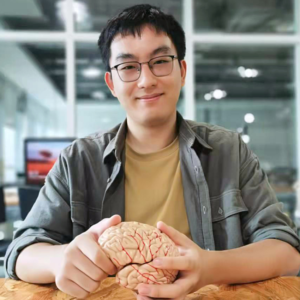Events
May 2nd: MPUTC Research Day and Neuroscience Conference2024
Conference / Research Day
MAY 2, 2024, 9:00 AM - 6:00 PM, ET
MAY 2, 2024, 9:00 AM - 6 PM, ET
MSB, U of T
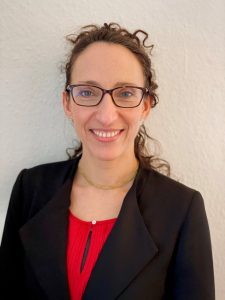
Lucia_Melloni
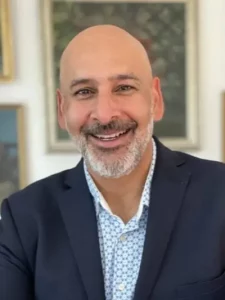
Jaideep Bains
2024 MPUTC Research Day & Neuroscience Conference
The 2024 MPUTC Research Day, as a part of the 2024 Neuroscience Conference, will take place on Thursday , May 2nd, 2024 in person at the Medical Sciences Building, U of T, in partnership with the Collaborative Program In Neuroscience (CPIN) and the Center for Advancing Neurotechnological Innovation to Application (CRANIA). Please Register for the 2024 MPUTC Research Day here by April 22, 2024 to receive further details.
Keynote Speakers:
Lucia Melloni, W2 Group Leader (Tenure), Max Planck Institute for Empirical Aesthetics, Department of Neuroscience
Title: Using Adversarial Collaboration to Harness Collective Intelligence
Abstract: There are many mysteries in the universe. One of the most significant, often considered the final frontier in science, is understanding how our subjective experience, or consciousness, emerges from the collective action of neurons in biological systems. While substantial progress has been made over the past decades, a unified and widely accepted explanation of the neural mechanisms underpinning consciousness remains elusive. The field is rife with theories that frequently provide contradictory explanations of the phenomenon. To accelerate progress, we have adopted a new model of science: adversarial collaboration in team science. Our goal is to test theories of consciousness in an adversarial setting. Adversarial collaboration offers a unique way to bolster creativity and rigor in scientific research by merging the expertise of teams with diverse viewpoints. Ideally, we aim to harness collective intelligence, embracing various perspectives, to expedite the uncovering of scientific truths. In this talk, I will highlight the effectiveness (and challenges) of this approach using selected case studies, showcasing its potential to counter biases, challenge traditional viewpoints, and foster innovative thought. Through the joint design of experiments, teams incorporate a competitive aspect, ensuring comprehensive exploration of problems. This method underscores the importance of structured conflict and diversity in propelling scientific advancement and innovation.
Jaideep Bains, Professor, Department of Physiology; Director, Krembil Research Institute, University Health Network.
Title: Stressed? Forget about it!
Dr. Jaideep Bains’ research uses multiple experimental approaches to reveal key features about neural circuits that regulate internal state and are also purposed to control behavior and store information in response to challenges. Specifically, his lab uses in vitro slice electrophysiology, in vivo imaging, optogenetics, behavioral analysis tools and physiological assays to characterize neural circuits that decode stress, modify internal states and generate specific coping behaviors. One of his goals is to better understand the mechanisms that allow these circuits, or specific cell populations, to store information related to the modality, intensity and temporal features of stress. In addition to his extensive experience in synaptic physiology and electrophysiology he has used circuit mapping approaches to link activity in specific cell populations to different behaviors. His work has linked brief stress exposure and enduring synaptic changes in the hypothalamus (reviewed in Bains et al, Nat Rev Nsci, 2015). His lab has provided clear evidence supporting a role for astrocytes in controlling the strength of excitatory synapses in the hypothalamus (Gordon et al, Nat Nsci, 2005, Neuron, 2009). More recently, his lab has shown new roles for hypothalamic CRH neurons as bottom-up controllers for complex behaviors associated with stress coping (Fuzesi et al, Nat Comm, 2016), the transmission and detection of affective states between mice (Sterley et al, Nat Nsci, 2018) and linking stress controllability and active behaviour strategies (Daviu et al, Nat Nsci, 2020)
More details will be emailed to you upon registration.
MPUTC Research Rounds
The purpose of MPUTC Research Rounds is to connect faculty, researchers and students within the neural science and technology world to promote collaboration and advancement.
In and beyond the cognitive map: the neural code of space and identity with insights from human neuronal recordings
Speaker: Qian Chu
Qian Chu received his BS in Neural Science from New York University’s Shanghai campus, where he studied how motor and memory networks give rise to sensory imagery and prediction using fMRI. At MPUTC, he is leveraging the opportunity to record field potentials and spiking activities from the human brain to investigate how visual exploration interacts with visuospatial memory. He is also an advocate for open science with an interest in developing open-source software for neural data analyses.
Abstract:
The prevailing theory that the brain harbors a “cognitive map”, a structural representation of knowledge akin to a geographical map, has been a cornerstone in neuroscience. This theory gained substantial support from the discovery of space-selective cells in the rodent medial temporal lobe (MTL), a breakthrough that was recognized with a Nobel Prize. However, recent advancements in accessing the human MTL have unearthed findings that suggest cognitive functions extending beyond the traditional cognitive map. Notably, the human MTL appears to host context-independent identity cells and a unique egocentric spatial code, which are not predicted by the current form of the theory.
In my presentation, I will focus on the burgeoning field of intracranial recordings from human single neurons, which enables an in-depth exploration of space and identity encoding in the human brain. I will outline the intricate technical procedures involved in acquiring such data, particularly from patients undergoing invasive monitoring. Additionally, I will present data from our research and others that supports and/or expands the concept of the cognitive map. Through a focus on humans and primates, we hope to shed light on a more comprehensive understanding of the MTL’s role in systems neuroscience.
Research Rounds
December 7, 2023
8:00 AM – 9:00 AM, ET
2:00PM – 3:00PM, CET
Zoom
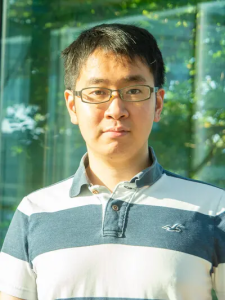
Fu Der Chen
MPUTC Research Rounds
The purpose of MPUTC Research Rounds is to connect faculty, researchers and students within the neural science and technology world to promote collaboration and advancement.
Development of nanophotonic neural probes for simultaneous optogenetic stimulation and electrophysiology recording
Speaker: Fu-Der Chen
Fu-Der Chen received his BASc and MASc degrees in Electrical and Computer Engineering from the University of Toronto, Ontario, Canada, in 2017 and 2019, respectively. Currently, he is in his fourth year Ph.D. degree at the Max Planck – University of Toronto Centre. His research interest is to develop new implantable optogenetics tools with integrated photonics technology.
Abstract:
Optogenetics has revolutionized neuroscience research by providing a precise method to dissect neural circuits using light. To enable precise light delivery into the brain and recording the stimulated response, the field has seen the emergence of numerous implantable devices that integrate electrophysiology recording and optogenetic stimulation capabilities for bidirectional interrogation of the brain. These devices offer researchers the potential to explore complex brain mechanisms across various brain regions at high density. Silicon photonics, commonly used in data communications applications, is one promising technology for developing diverse implantable devices with complex optical systems in a compact form factor. The devices can also leverage the established silicon photonic foundries to be manufactured at scale, broadening the technology dissemination.
In this presentation, I will discuss my research on the development of novel nanophotonic neural probes with monolithically integrated microscale emitters for optogenetic stimulation and microelectrode array for electrophysiology recording. In addition, I will walk through different probe designs; each tailored to deliver specific beam emission profiles, allowing precise control of the illumination volume from each emitter. This flexibility opens the door to a myriad of neuroscience experiments. I will highlight some experiments demonstrated with our nanophotonic neural probes and discuss the potential path for advancing the technology to be accessible to the broader neuroscience community. Lastly, I will share insights learned along my journey that could better prepare other researchers working on neurotechnology development.
Information Session
October 18, 2023
9:00am – 10:00AM ET
3:00pm – 4:00pm CET
Zoom
MPUTC Joint PhD Program Information Session
The Max Planck-University of Toronto Centre for Neural Science and Technology (MPUTC) offers a joint PhD program between the Max Planck Society (MPG) and the University of Toronto (U of T) in the following research areas:
- Developing novel tools for observing and stimulating neural activity
- Conducting neurobiology experiments that use advance tools
- Analyzing data, creating models, and making predictions about neural activity
The MPUTC will fund U of T-registered PhD students who are jointly supervised by an MPG scientist (e.g., director, group leader, senior scientist) and a U of T faculty carrying research in the above themes.
The jointly supervised PhD student in selected U of T departments/graduate units will receive a stipend award with a value of $18,000+, and the PhD student’s income will be covered by a PhD contract at the partner Max Planck Institute during the research phase of the PhD program. The Max Planck co-supervisor will receive funding support from the MPG.
To submit a proposal for a joint PhD project, please complete this MPUTC Joint PhD Project Proposal template by December 1, 2023.
A virtual information session about the MPUTC joint PhD program is scheduled on Wednesday, October 18, 2023, 9 – 10 AM, ET / 3 – 4PM, CET. Please register now to attend the info session. We will cover the current status of MPUTC, the joint PhD program and funding for PhD students, and answer any questions you may have about the program.
Research Rounds
October 10, 2023
8:00 AM – 9:00 AM, ET
2:00PM – 3:00PM, CET
Zoom

Taufik Valiante
MPUTC Research Rounds
The purpose of MPUTC Research Rounds is to connect faculty, researchers and students within the neural science and technology world to promote collaboration and advancement.
Speaker: Dr. Taufik Valiante
Moderator: Dr. Luka Milosevic
Dr. Taufik Valiante completed his residency in the Neurosurgery Training Program at the University of Toronto in 2002, and an Epilepsy Surgery Fellowship at the University of Washington, Seattle, under the mentorship of Dr. George Ojemann in 2003. In 2007 he established a state of the art five-bed Epilepsy Monitoring Unit at the Toronto Western Hospital, significantly increasing surgical services to those with medically refractory epilepsy throughout the Province of Ontario. Through his involvement with professional and not-for profit epilepsy organizations, he is a strident advocate for the standardization of epilepsy care.
He is currently the Director of the Surgical Epilepsy Program at the Krembil Brain Institute, a Scientist at the Krembil Research Institute, and has a cross-appointment at the Institute of Biomaterials and Biomedical Engineering. His neurosurgical staff appointment is at the Toronto Western Hospital, and he is currently Associate Professor of Neurosurgery at the University of Toronto.
Conference / Research Day
MAY 19, 2023, 9:00 AM - 4:30 PM, ET
Medical Sciences Building, U of T
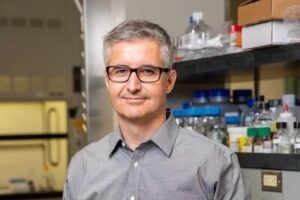
Marcelo Wood
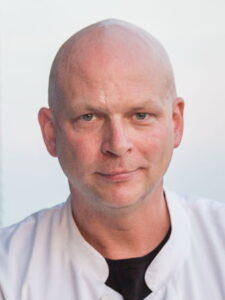
Florian Mormann
MPUTC Research Day / Neuroscience Conference 2023
The MPUTC Research Day, co-organized with the Collaborative Program In Neuroscience (CPIN), will take place on Friday, May 19th, 2023 in person at the Medical Sciences Building, U of T. Register for the conference to receive up-to-date program schedule and details.
Keynote Speakers:
Marcelo Wood, PhD. Professor and Chair, Department of Neurobiology and Behavior. University of California.
Dr. Wood received his BS in Chemical Engineering from the University of Colorado in Boulder. From there he changed fields to study the molecular mechanisms underlying cancer biology in the Department of Molecular Biology at Princeton University, where he received his PhD. His graduate work focused on epigenetic mechanisms of cancer biology. He then switched fields again to study the role of epigenetic mechanisms underlying long-term memory in his Postdoctoral research with Dr. Ted Abel at the University of Pennsylvania. Dr. Wood is a pioneer and at the forefront of studying cognitive neuroepigenetics. His lab currently focuses on the role of epigenetic mechanisms involved in synaptic plasticity, normal long-term memory processes, memory processes associated with drugs of abuse, and age-related memory impairments.Image The goal in the Wood lab is to understand the molecular mechanisms underlying normal long-term memory processes so that we may be able to one day develop approaches to ameliorate memory dysfunction associated with intellectual disability disorders as well as age-dependent memory impairment. In addition, because memory circuits in the brain are affected by drugs of abuse, the lab also examines memory processes associated with drugs of abuse, and how to extinguish those memories. His lab has been continuously funded by NIDA, NIA, NIMH, private foundations, and sponsored research agreements. He works closely with several industry partners to develop therapeutics based on fundamental basic research discoveries in the field. In addition, Dr. Wood has a deep commitment to training, mentorship and education, serving as Director of the NIDA T32 Training Program in Substance Use and Use Disorders, Founding Director of the UC Irvine Center for Addiction Neuroscience, Steering Committee Member of the Minority Science Programs at UC Irvine, and most recently awarded an HHMI Gilliam Advisor award.
Florian Mormann, Group Leader, Lichtenberg, Professor of Cognitive and Clinical Neurophysiology, Department of Epileptology, University of Bonn Medical Center.
Prof. Mormann will deliver a lecture titled “Cognitive adventures of single neurons in the human medial temporal lobe“.
Prof. Mormann and his lab are particularly interested in microscopic phenomena such as high frequency oscillations, microseizures, cellular and network behavior. Their research focus:
Cognitive Neurophysiology: We are interested in the neurobiology of perception and memory. We explore neuronal behavior in the medial temporal lobe to understand how conscious percepts are transferred into episodic memory traces.
Clinical Neurophysiology: We investigate the pathophysiological mechanisms that lead to the occurence of epileptic seizures. Our particular focus is on microscopic phenomena such as high frequency oscillations, microseizures, cellular and network behavior.
Lecture Session
March 6, 2023
10:00 AM – 11:00 AM, ET
4:00PM – 5:00PM, CET
Zoom
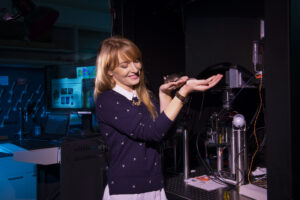
Mackenzie Mathis
Mackenzie Mathis
Title: Uncovering Neural Latent Dynamics with Joint Modeling of Neural Data and Behavior
Abstract: Mapping behavioral actions to neural activity is a fundamental goal of neuroscience. As our ability to record large neural and behavioral data increases, there is growing interest in modeling neural dynamics during adaptive behaviors to probe neural representations. In particular, neural latent embeddings can reveal underlying correlates of behavior, yet, we lack non-linear techniques that can explicitly and flexibly leverage joint behavior and neural data to uncover neural dynamics. Here, we fill this gap with a novel encoding method, CEBRA, that jointly uses behavioral and neural data in a (supervised) hypothesis- or (self-supervised) discovery-driven manner to produce both consistent and high-performance latent spaces. We show that consistency can be used as a metric for uncovering meaningful differences, and the inferred latents can be used for decoding. We validate its accuracy and demonstrate our tool’s utility for both calcium and electrophysiology datasets, across sensory and motor tasks, and in simple or complex behaviors across species. It allows for single and multi-session datasets to be leveraged for hypothesis testing or can be used label-free. Lastly, we show that CEBRA can be used for the mapping of space, uncovering complex kinematic features, produces consistent latent spaces across 2-photon and Neuropixels data, and can provide rapid, high-accuracy decoding of natural movies from visual cortex.
Lecture Session
October 24, 2022
10:00 AM – 11:00 AM, ET
4:00PM – 5:00PM, CET
Zoom
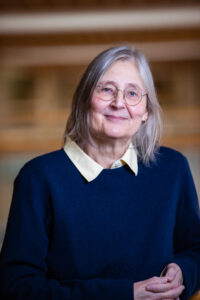
Ute Hochgeschwender
Ute Hochgeschwender
Title: Bioluminescent Optogenetics – Molecular Control with Biological Light
Abstract: Optogenetic elements, such as channelrhodopsins, are activated in nature by sunlight, and in the laboratory generally by lasers or LEDs. However, they also respond to ‘biological light’, bioluminescence emitted when a luciferase enzyme oxidizes its small molecule luciferin. This BioLuminescent OptoGenetics (BL-OG) technology offers a highly modular and versatile approach for activating light sensing molecules. When the luciferase is tethered to an opsin in a luminescent opsin, or luminopsin (LMO), light emitted from the luciferase leads to opening of a channelrhodopsin or activation of a pump, and to a change in the cell’s membrane potential. As in BL-OG both light emitter and light sensor are genetically encoded, they can be expressed in different cells. If they are expressed in synaptically connected neurons, this Interluminescence functions as a real-time optical synapse. Biological light can be used to activate light-sensing proteins other than opsins (photoreceptors in general, including transcription factors and recombinases), and can thus be employed widely for genetic activation and protein transformation. BL-OG is being applied to the study of brain circuits and their corrective manipulation in pathological conditions.
Lecture Session
June 27, 2022
1:00 PM – 2:00 PM, ET
7:00PM – 8:00PM, CET
Zoom

Michael A. Yassa
Title: Episodic Memory Mechanisms in Health and Disease
Abstract: Memory is the sum of who we are. It is the bridge to our past and future. It takes a fleeting moment in our experience and allows it to last indefinitely. It stretches our consciousness over a lifetime and allows us to enjoy meaningful and fulfilling lives. Simply put, without memory, humanity as we know it could not exist. Yet, for something so essential and ubiquitous, we still know little about how it works. This talk will specifically focus on one type of memory, episodic memory, and how we can operationally define and study it using a computational or information processing approach. How does episodic memory change as we get older? What neurobiological mechanisms underlie age-related memory loss? Can we distinguish between normal age-related changes in cognition and changes related to Alzheimer’s disease? Finally, how we can use this circuit-based approach to studying cognition to better diagnose cognitive disorders?
Conference / Research Day
MAY 27, 2022, 9:30 AM - 4:00 PM, ET
Zoom
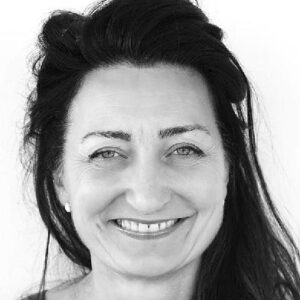

MPUTC Research Day & Neuroscience Conference 2022
The 2022 Neuroscience Conference, co-organized by the Collaborative Program In Neuroscience (CPIN), Southern Ontario Neuroscience Association (SONA), and Max Planck-University of Toronto Centre (MPUTC) for Neural Science and Technology, will take place virtually on Friday, May 27, 2022. The MPUTC Research Day will take place in conjunction with the conference. Registration is still open to all members of SONA, MPUTC and CPIN ( Research Day & 2022 Neuroscience Conference Registration (utoronto.ca)).
Professor May-Britt Moser, Norwegian University of Science and Technology, Norway, and Nobel Laureate, the CPIN Julius Axelrod Distinguished Visiting Neuroscientist Lecturer, will deliver the keynote lecture at the joined conference, titled “Space and memory in the brain“.
May-Britt Moser is a Professor of Neuroscience and Scientific Director of the Centre for Neural Computation Scientific Co-Director of the Kavli Institute for Systems Neuroscience at the Norwegian University of Science and Technology (NTNU) in Trondheim. She is interested in the neural basis of spatial location and spatial memory as well as cognitive functions more generally. Her work, conducted with Edvard Moser as a long-term collaborator, includes the discovery of grid cells in the entorhinal cortex, as well as the identification of other functional cell types, including head direction cells, border cells, speed cells and object-vector cells, as well as recent mechanisms for representation of episodic time – findings that collectively point to the entorhinal cortex as a hub for the brain network for representation of space and experience. She has shown that this network has adult-like properties from very early age in rodents, pointing to a possible innate basis for spatial coding by the brain. With her collaborators, she is beginning to unravel how the neural microcircuit is organized at the level of interactions between large numbers of diverse neurons with known functional identity – an endeavour that is significantly boosted by the recent development of Neuropixels probes and 2-photon miniscopes for simultaneous recording of thousands of neurons in freely-moving rats and mice (the latter developed in her lab). The discovery of grid cells and the underlying population dynamics have led to a revision of established views of how the brain calculates self-position, and how such information is stored in memory, and spatial mapping and is becoming one of the first non-sensory cognitive functions to be characterized at a mechanistic level in neural networks.
May-Britt Moser received her initial training at the University of Oslo, under the supervision of Dr. Per Andersen, on the structural basis of hippocampal memory, but during the PhD training she had several longer visits to Edinburgh to work with Dr. Richard Morris at the University of Edinburgh. She also spent a month in London in the lab of John O’Keefe at University College of London to learn single unit recordings. She has been a professor at NTNU since 2000. She has received numerous awards for her work. Together with Edvard Moser and John O’Keefe, she was awarded the Nobel Prize in Physiology or Medicine in 2014.
———————
David Poeppel is a Professor of Psychology and Neural Science at NYU (since 2009) and the CEO of the Ernst Strüngmann Institute (ESI) for Neuroscience in Cooperation with Max Planck Society in Frankfurt Germany (since 2021).
Trained at MIT in cognitive science, linguistics, and neuroscience, Poeppel did his post-doctoral training at the University of California San Francisco where he focused on functional brain imaging. From 1998 to 2008, he was a professor at the University of Maryland College Park, where he ran the Cognitive Neuroscience of Language laboratory. From 2014-2021, he was the Director of the Department of Neuroscience at the Max Planck Institute for empirical Aesthetics in Frankfurt. He has been a Fellow at the Wissenschaftskolleg (Institute for Advanced Studies Berlin) and The American Academy Berlin, and a guest professor at many institutions. He is a Fellow of the American Association for the Advancement of Science.
Prof. Poeppel will deliver a presentation titled “Rhythms in Sounds and Brains“.
Lecture Session
March 1, 2022
10:00am – 11.00am ET
4:00pm – 5.00pm CET
Zoom
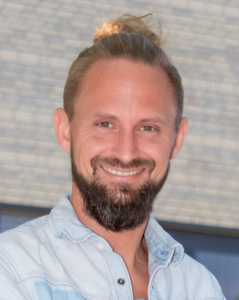
Max Happel
Title: Neuronal circuit physiology of learning, motivation & decision making
In an ever-changing world, we need to detect, predict and behaviourally respond to important stimuli on short and longer time scales. Particularly in the vertebrate brain, neuronal circuit adaptations mainly generated by associative reinforcement learning are the fundament of remote memory formation and guided behavioural choices. In sensory learning, organisms have to extract and amplify a small number of sensory features with behavioural relevance to a particular situation.
In this context, the primary auditory cortex plays a fundamental role in auditory learning and memory, and decision making. Utilizing multichannel electrophysiology recordings of the auditory cortex in freely moving animals, we could demonstrate that not only sensory, but particularly task- and choice-related information is represented in the neuronal population code distributed across cortical layers. By optogenetic stimulation of reward circuits, we shed light on the underlying functional circuit mechanisms of dopaminergic neuromodulation, as a key element of coding prediction and surprise in the brain.
Lecture Session
November 30, 2021
10:00am – 11.00am EDT
4:00pm – 5.00pm CET
Zoom
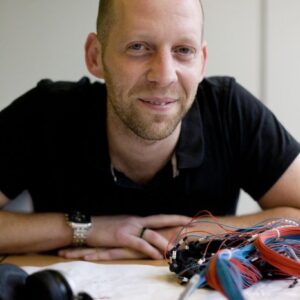
Mike X Cohen
The first lecture session of the Max Planck-University of Toronto Centre for Neural Science and Technology started with Mike X Cohen, Professor at Radboud University Medical Centre.
Title: Nonorthogonal souses generally have the goal of taking weighted combinations of electrodes to obtain a single component, thus reducing the number of dimensions from M electrodes torce-separation for guided network discovery
Increases in the number of simultaneously recorded electrodes allow new discoveries about the spatiotemporal structure in the brain, but also presents new challenges for data analyses. In part this is because of difficulties in analyzing each electrode individually, but also because the spatiotemporal structure in the brain spans multiple electrodes (and, usually, levels of analysis). “Source separation” analy C components, where C<<M. In this talk, Mike X Cohen will introduce one family of source separation techniques, which is based on generalized eigendecomposition (GED). GED is highly accurate, fast, and is an optimal (and closed-form) mathematical solution to a straight forward problem. Mike X Cohen will show several use-cases in simulated and real data, and provide downloadable sample code (MATLAB and Python) that can be adapted to different datasets.
Information Session
November 8, 2021
10:00am – 11.00am EDT
4:00pm – 5.00pm CET
Zoom
Information Session
The Max Planck-University of Toronto Centre for Neural Science and Technology (MPUTC) was inaugurated in April 2021. The MPUTC will offer a joint Ph.D. program between the Max Planck Society (MPG) and the University of Toronto (U of T) in the following research areas:
- Developing novel tools for observing and stimulating neural activity
- Conducting neurobiology experiments that use advance tools
- Analyzing data, creating models, and making predictions about neural activity
The MPUTC will fund U of T-registered Ph.D. students who are jointly supervised by a MPG scientist (e.g., director, group leader, senior scientist) and a U of T faculty carrying research in the above themes.
Information Session
10:00 AM – 11:00 AM (EDT) | 4:00 PM – 5:00 PM (CET)
Ceremonial Inauguration
April 14, 2021
9:00am – 11.30am EDT
3:00pm – 5.30pm CEST
Zoom
Ceremonial Inauguration
A new research partnership: The Max Planck – University of Toronto Centre for Neural Science & Technology, is launching with an inaugural event on Wednesday, April 14th, 2021.
Join the event to hear from the presidents at both partnering institutions, President Meric Gertler of University of Toronto and President Martin Stratmann of Max-Planck Gesellschaft as they celebrate this exciting collaboration.
Virtual Signing
9:00 AM – 9:50 AM (EDT) | 3:00 PM – 3:50 PM (CEST)
Scientific Talks
10:00 AM – 11:30 AM (EDT) | 4:00 PM – 5:30 PM (CEST)
Scientific Talks
Viola Priesemann
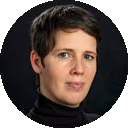
Self-organization and learning in neural Systems
Sean Hill
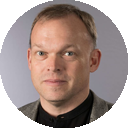
A multiscale approach to brain disorders
Metin Sitti
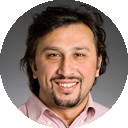
Wireless miniature medical robots for neurological applications
Sheena Josselyn
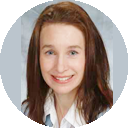
Making memories in mice

